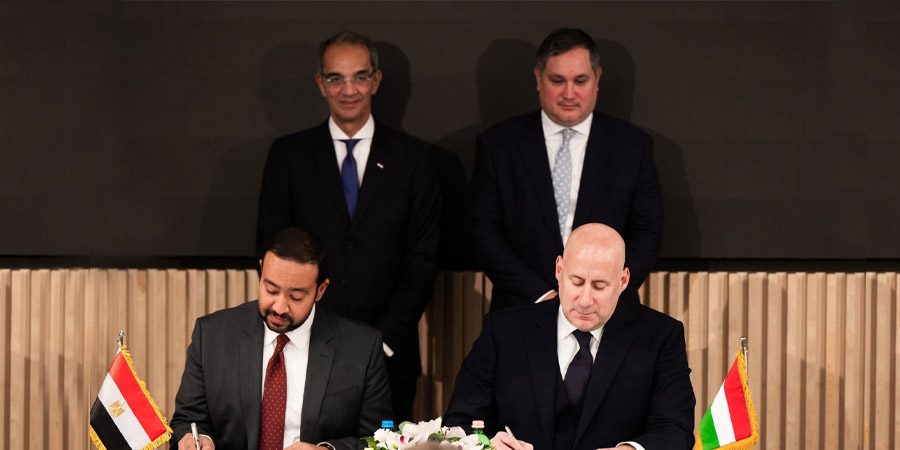4iG Plc info-communications company and Telecom Egypt— Egypt’s first integrated telecom operator and one of the largest subsea cable operators in the region— have reached an agreement on the terms of cooperation for the construction of an express subsea cable between Albania and Egypt. Following the signing of a Memorandum of Understanding (MoU) last October, the terms of this cooperation agreement establish a joint venture between the two companies for the intercontinental subsea cable project. The express subsea cable will create a high-capacity, intercontinental connection linking Africa and Asia (through the Red Sea) to Europe, via Egypt, the Mediterranean, and Albania.
4iG Plc Chairman, Gellért Jászai, and Telecom Egypt Managing Director and CEO, Mohamed Nasr Eldin, signed the agreement in Budapest, Hungary, in the presence of H.E. Márton Nagy, Minister of National Economy of Hungary, and H.E. Dr. Amr Talaat, Minister of Communications and Information Technology of Egypt, as well as top officials from both companies.
Adding Diversity, Managing Data Traffic and Granting Access
Noted as the first cable to link the two countries, the planned subsea cable’s Mediterranean route will be unique, adding another layer of diversity to the conventional Mediterranean routes linking Egypt to Italy and France. This route diversification adds resilience to the existing Mediterranean routes connecting Egypt to Italy and France, enhancing connectivity options and reducing the risk of disruptions.
It will capture a significant share of the huge and rapidly growing data traffic market between Asia, East Africa, and Europe. As data traffic continues to grow rapidly in these regions, particularly with the increasing adoption of digital technologies and online services, having direct connectivity through the Albania-Egypt cable offers efficiency and speed in data transmission. This is crucial for businesses, governments, and individuals alike who rely on seamless and reliable internet connectivity for communication, commerce, and various other activities.
The cable system, following its optimized marine route, will offer the possibility of extension to key Mediterranean destinations, including Libya, Cyprus, and Greece. The initial configuration of the subsea cable will also include a branch to Italy. At both ends of the cable, users will benefit from varied extension options with an open point-of-presence concept.
The Egyptian terminus of the cable will grant access to numerous subsea cables extending southeast through the Red Sea to Asia and Africa. Additionally, it connects to over 10 terrestrial trans-Egypt routes, linking the Mediterranean cable segment to various extension options in the Red Sea. The Albanian terminus of the cable will provide the shortest path to Frankfurt, as well as other important international traffic destinations in Eastern and Central Europe and the Balkans, such as Sofia, Vienna and Budapest.











